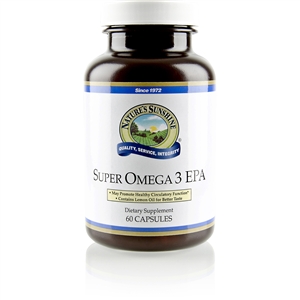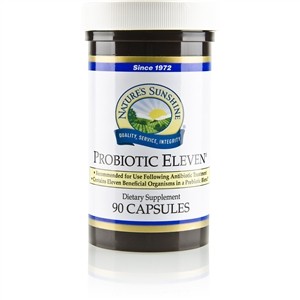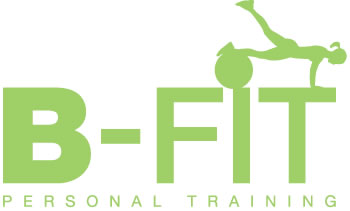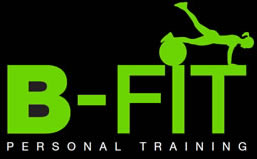Did you know that 30% of the global population are overweight or obesee and obesity is responsible for an estimated 500,000 cancer cases across the world each year.
Obesity related cancers include colon, rectum, ovary, postmenopausal breast and womb cancer. Women are at greatest risk and are twice as likely as men to develop obesity related cancer. What is really worrying is that if the current trends continue, experts believe that nearly half of the world’s adult population will be overweight or obese by 2030 which will of course mean an increase in cancer too.
Obesity doesn’t just cause an increased risk of cancer. Diseases also linked to obesity include;
• Type 2 Diabetes
• Cancer (breast, endometrial, colon, gallbladder, prostate, kidney)
• Heart disease
• Sleep disorders
• Hypertension
• Polycystic ovarian syndrome
• Gastro-esophageal reflux disease
• Dementia
• Chronic renal failure
• Lymph edema
• Stroke
• Depression
• Osteoarthritis
• Gallbladder disease
• Asthma
Keep in mind, however, that while obesity is associated the diseases mentioned above, it is not their cause. Obesity is a marker.
What’s Really Fuelling the Obesity Epidemic?
Obesity is not simply the result of eating too much and not doing enough exercise. While it is part of the equation, environmental and lifestyle factors appear to play a far more significant role. Part of the problem is that many people don’t realise they’re affected by these factors, and therefore fail to address them. These include;
• Overuse of antibiotics in food production and medicine
• Growth-enhancing drugs used in food animals
• Endocrine-disrupting chemicals, including pesticides
• Artificial sweeteners
• Aggressive stealth marketing of harmful junk food
Processed foods are the primary culprit, as they’re full of ingredients that both individually and in combination contribute to metabolic dysfunction and hard-to-control weight gain.
The worst culprits when it comes to processed foods are;
• Genetically engineered (GE) ingredients. These include corn, soy, and sugar beets.
• High fructose corn syrup (HFCS). Besides being one of the primary sources of genetically modified organisms (GMOs), it’s also a primary source of calories in the western diet. HFCS is even worse than regular sugar from a metabolic standpoint, and is a potent driver of metabolic dysfunction.
• Hydrogenated vegetable oils (trans fats) known to cause heart and cardiovascular disease is made from GE soy that is resistant to pesticide. Besides the hazards of being genetically modified and highly contaminated with pesticides, unfermented soy has also been linked to a number of health problems, including breast cancer. When cooked at high temperatures, vegetable oils also degrade into toxic oxidation products known as cyclic aldehydes, which appear to be even more harmful than trans fats.
• Sugar beets are also genetically engineered, ensuring that even foods sweetened with “regular sugar” fall into a more toxic category, courtesy of elevated pesticide contamination.
Corn syrup, trans fats, and sugar—most of which is genetically engineered and highly contaminated with toxic pesticides—all of these are dietary factors that fuel the epidemic of poor health, starting with excess weight gain. So, if you want to address your weight, and reduce your chances of cancer, you really must take a long hard look at what you’re eating on a daily basis.
10 Tips For Preventing Both Obesity and Cancer
Prevention is key and there are steps you can take to ensure that you lower your risk for cancer (and keep obesity at bay). Fortunately, there is much you can do to lower your risk for cancer. Living a preventative lifestyle will reduce your risk of cancer and chronic disease. These tips will also help reduce your weight and insulin/leptin sensitivity.
1. Buy Whole Organic Foods, And Cook From Scratch
First of all, this will automatically reduce your sugar consumption, which is the root cause of most insulin resistance and weight gain. The evidence is also quite clear that if you want to avoid cancer, or you currently have cancer and insulin resistance, you MUST avoid all forms of sugar, especially fructose, which feeds cancer cells and promotes their growth. Make sure your total fructose intake is less than 25 grams per day, or 15 grams if you’re struggling with insulin resistance or have symptoms of insulin resistance (diabetes, high blood pressure, obesity, or heart disease).
If you buy organic produce, you’ll also cut your exposure to pesticides and genetically engineered ingredients, and in ditching processed foods, you’ll automatically avoid artificial sweeteners and harmful processed fats. Speaking of fats, most people need upwards of 50-85 percent healthy fats in their diet for optimal health.
We talked last week about healthy fats and some of my favourite include;
- avocados
- coconuts and coconut oil
- unheated organic nut oils
- raw nuts and seeds
- organic pastured egg yolks
- grass-fed meats
2. Reconsider How You Prepare And Cook Your Food
I recommend eating at least one-third of your food raw. Avoid frying where possible and if you do fry, use avocado oil which doesn’t change composition when used at higher temperatures. Where possible, if you can’t eat your foods raw, boil, poach, or steam your foods instead. Consider adding cancer-fighting whole foods, herbs, spices and supplements to your diet, such as broccoli, cumin and turmeric.

3. Normalise Your Ratio Of Omega-3 To Omega-6 Fats
You can do this by taking a high-quality Omega and I cannot recommend the Nature’s Sunshine Super Omega 3 enough! http://bfit.eu.nspshop.com/super_omega-3_epa_(60).htm Reduce your intake of processed vegetable oils, like corn, soy, and canola.(Check the labels on your foods as these nasties hide in many!).
 4. Optimise Your Gut Flora To Reduce Inflammation And Strengthen Your Immune Response
4. Optimise Your Gut Flora To Reduce Inflammation And Strengthen Your Immune Response
Researchers have found a microbe-dependent mechanism through which some cancers mount an inflammatory response that fuels their development and growth. They suggest that inhibiting inflammatory cytokines might slow cancer progression and improve the response to chemotherapy. Adding naturally fermented food to your daily diet is an easy way to prevent cancer or speed recovery. You can always add a high-quality probiotic supplement as well, but naturally fermented foods are the best. I recommend Nature’s Sunshine Probiotic Eleven to deliver that good bacteria your gut needs. http://bfit.eu.nspshop.com/probiotic_eleven_(90).htm
5. Exercise
Exercise lowers your insulin levels, thereby promoting weight loss, and discouraging the growth and spread of cancer cells. In one three-month study, exercise was found to alter immune cells into a more potent disease-fighting form in cancer survivors who had just completed chemotherapy. Researchers and cancer organisations increasingly recommend making regular exercise a priority in order to reduce your risk of cancer, and help improve cancer outcomes. Research has also found evidence suggesting exercise can help trigger apoptosis (programmed cell death) in cancer cells. Ideally, your exercise program should include balance, strength, flexibility, and high intensity interval training (HIIT). At B-Fit I work with women of all abilities and tailor an exercise program that is right for the individual. I don’t believe in slaving away for hours at the gym and can develop a personalised programme that will give you all the heath and fat fighting benefits you need to stay slim and healthy.
 6. Vitamin D
6. Vitamin D
There is scientific evidence you can decrease your risk of cancer by more than half, simply by increasing your vitamin D levels with appropriate sun exposure. Your serum level should hold steady at 50-70 ng/ml, but if you are being treated for cancer, it may be advisable to be closer to 80-90 ng/ml for optimal benefit. If you take oral vitamin D and have cancer, it would be very prudent to monitor your vitamin D blood levels regularly, as well as supplementing your vitamin K2 and magnesium, as these nutrients work in tandem. I recommend the Nature’s Sunshine Vitamin D supplements, especially through the winter months to ensure you get enough. http://bfit.eu.nspshop.com/vitamin_d
7. Sleep
I say this to absolutely everyone I meet. Sleep is key to your weight, your energy levels and your overall health and wellbeing. Make sure you are getting enough restorative sleep. Most of us need 8 hours so strive for that by getting to bed early enough. Poor sleep can interfere with your melatonin production, which is associated with an increased risk of insulin resistance and weight gain, both of which raise your risk of cancer. Melatonin in and of itself is also a potent antioxidant with known anti-cancer properties, which is another reason why sleeping well is so important for cancer prevention. Make sure you turn off all electronic devices before you go to bed, make the room as dark as possible to ensure you get good quality sleep.
8. Avoid Toxins
Reduce your exposure to environmental toxins like pesticides, herbicides, household chemical cleaners, synthetic air fresheners, and toxic cosmetics. Where possible, buy organic and paraben free cosmetics.
One thing I recommend at B-Fit is to undertake the B-Fit B-Fabulous 21 Day Weight Loss Plan(otherwise known as the B-Fit detox). This 21 day plan will help you eliminate nasty toxins and therefore eliminate the fat cells that store the toxins. It is a great way to not only lose weight but ensure you’re losing those harmful toxins for better health and wellbeing.
9. Avoid Radiation Exposure
Limit your exposure and protect yourself from radiation produced by mobile phones, towers, base stations, and Wi-Fi stations, as well as minimising your exposure from radiation-based medical scans, including dental x-rays, CT scans, and mammograms.
10. Manage Your Stress
Stress from all causes is a major contributor to disease. The world’s leading scientific statistics state that 85 percent of disease is driven by emotional factors. It is likely that stress and unresolved emotional issues may be more important than the physical ones, so make sure this is addressed. My favourite tool for resolving emotional challenges is Emotional Freedom Technique (EFT).

